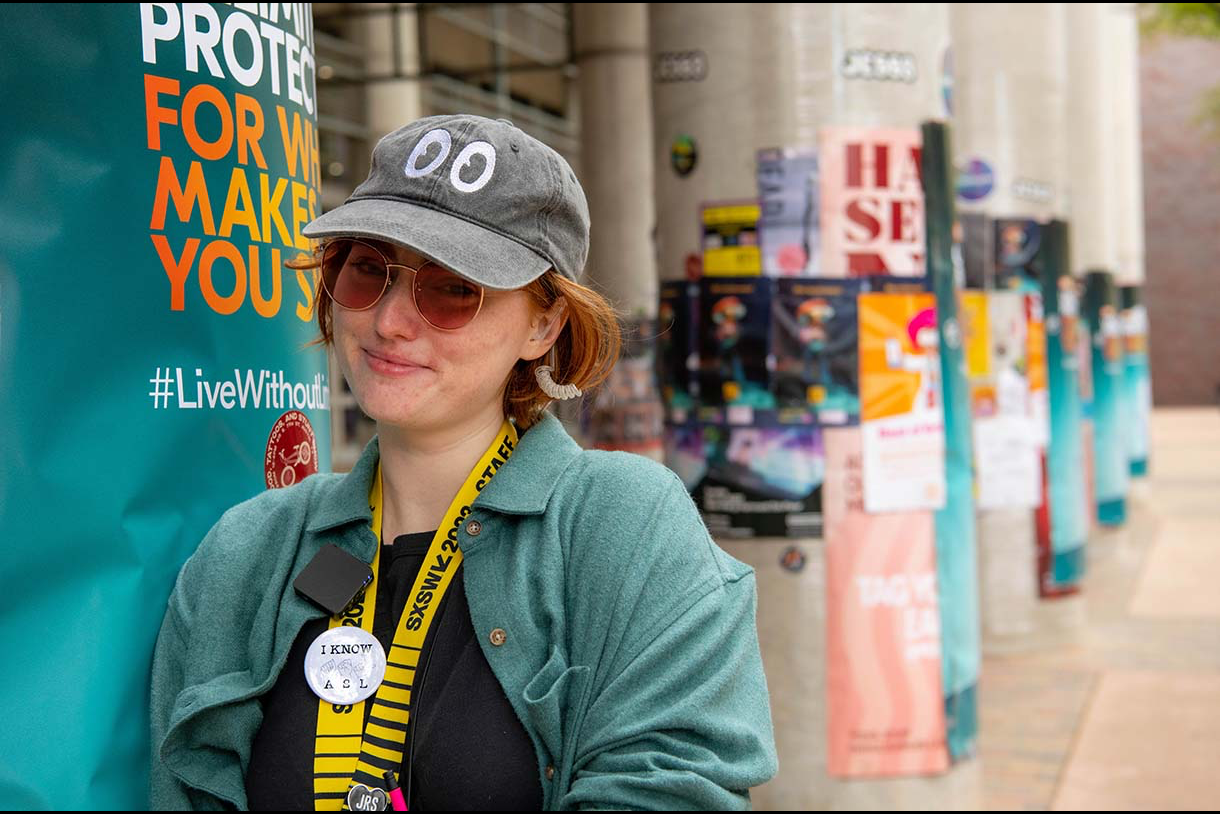Alum Mary Kate Ashe '19 Promotes Accessibility at SXSW

For many, comfortable shoes and a water bottle are the most essential items needed to enjoy South by Southwest (SXSW), the expansive conference and music and TV festival that spans across downtown Austin, Texas, and beyond. But for those with disabilities, like student TJ Hayes who is the first Columbia student to navigate SXSW in a wheelchair, easy access to the 10-day event’s offerings is an even bigger priority.
That’s why SXSW hired Deaf Studies Alum Mary Kate Ashe ’19 — an inclusive artist, educator, and accessibility designer — to be SXSW’s accessibility operations specialist.
In this role, Ashe ensures American Disabilities Act (ADA) compliance via planning ahead of the conference. She also trouble-shoots on the fly when challenges arise for people with disabilities speaking or attending SXSW’s keynote talks, panel discussions, music sessions, and films.
Elevator issues? Problems with a ramp? She’s there.
And when Michael J. Fox—who has Parkinson’s disease—came to SXSW to screen his documentary “STILL: A Michael J. Fox Documentary,” Ashe helped prep the theatre ahead of time and was on hand during the red-carpet event to ensure that everyone could participate.
“It’s super fun,” she says. “Everything I run to, I feel like I’m able to solve. And it’s a great team here. Everyone’s really listening.”
Ashe has been working with creatives on accessibility in theatre, including the Steppenwolf and the Neo-Futurist theatres, since her days at Columbia. Complicated staging and content, often make her job challenging. But she credits her experiences collaborating with ASL interpreters on Manifest—Columbia’s student-run, year-end celebration—for preparing her well.
“It's a lot of working together to figure it out…which is something that I did the whole time I was at Columbia,” she says.
Back in Chicago, Ashe will continue her work with the Neo-Futurist’s summer show Elements of Style, which she co-wrote. A musical, the piece explores themes of language and identity in Strunk and White’s grammar guide and in EB White’s body of children’s literature (e.g., Charlotte’s Web and Stuart Little). The show integrates accessibility into the concept by having all speaking parts recorded rather than live.
“We started at accessibility and are building outwards instead of building inwards,” she says.
Ashe feels she has found her niche in working with creatives to promote accessibility. Immersing herself in Columbia's creative community while learning ASL played a pivotal role in that.
“When I was learning that language, I was also learning so many creative things that I can just use in a different way now,” she says.